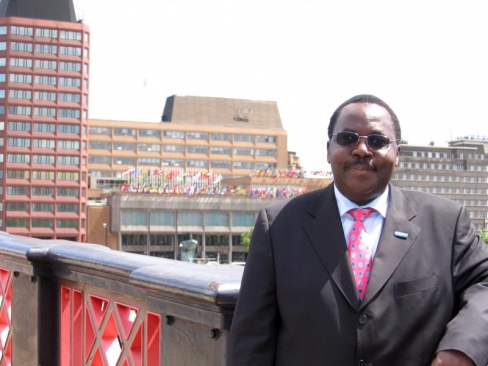×
The Standard e-Paper
Fearless, Trusted News

On June 30, Kenya may have one of its own holding a coveted position that has eluded Africa for five decades. This is the Secretary General of the International Maritime Organisation (IMO).
And as if on cue, Juvenal Shiundu, after being nominated by the Government for the position, chose to officially launch his campaign aboard a historical ship.